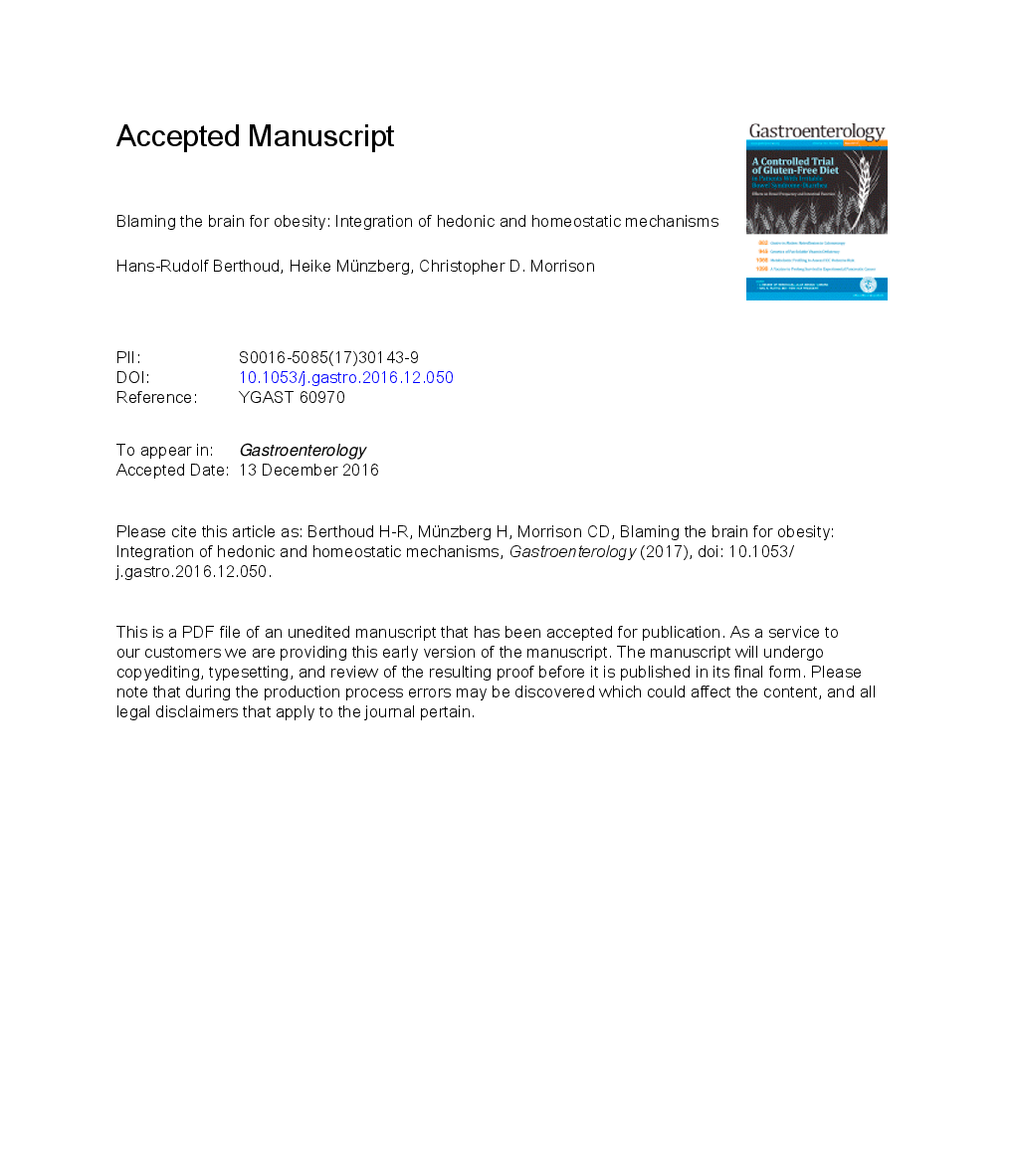ترجمه فارسی عنوان مقاله
سرزنش مغز برای چاقی: ادغام مکانیسم های هودونیک و هومستاتیک
عنوان انگلیسی
Blaming the Brain for Obesity: Integration of Hedonic and Homeostatic Mechanisms
| کد مقاله | سال انتشار | تعداد صفحات مقاله انگلیسی |
|---|---|---|
| 158120 | 2017 | 35 صفحه PDF |
منبع

Publisher : Elsevier - Science Direct (الزویر - ساینس دایرکت)
Journal : Gastroenterology, Volume 152, Issue 7, May 2017, Pages 1728-1738
ترجمه چکیده
مغز نقش کلیدی در کنترل مصرف انرژی و هزینه دارد و بسیاری از ژن های مرتبط با چاقی در سیستم عصبی مرکزی بیان می شوند. پیشرفت های تکنولوژیکی و مفهومی در علوم عصبی پایه و بالینی، دیدگاه سنتی از تنظیم هیستوستاتیک وزن بدن را به طور عمده توسط هیپوتالاموس گسترش می دهد تا شامل کنترل های اشتباهی توسط قسمت های ذهنی مغز و نخاع مغزی، پردازش اطلاعات خارجی حسی، پاداش، شناخت و عملکرد اجرایی شود. کنترل هیدونیک با کنترل های هوموستاتیک ارتباط برقرار می کند تا وزن بدن را به شیوه انعطاف پذیر و انطباقی تنظیم کند تا شرایط محیطی را در نظر بگیرد. این چارچوب مفهومی جدید دارای پیامدهای مهمی برای درمان چاقی است. از آنجایی که بسیاری از این پردازش های عصبی تعاملی خارج از آگاهی هستند، محدودیت شناختی در دنیای زیاد دشوار است و پیشگیری و درمان چاقی باید به طور منطقی به مکانیسم های پیچیده و اغلب انحصاری که این تعامل دارند، هدایت شود.

